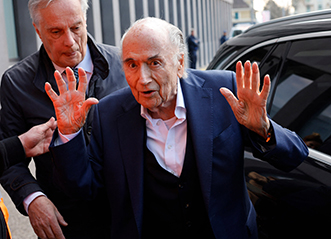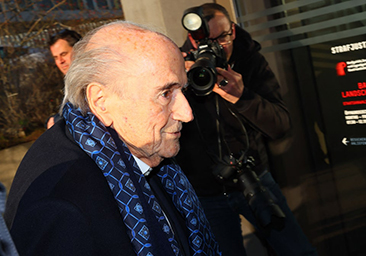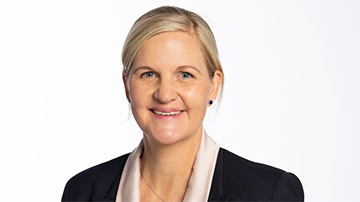Governing Bodies
Continental sports management body, ASMA endorses Sanusi-led Nigeria chapter
The Africa Sports Management Association, headquartered in Nairobi, Kenya has officially accorded recognition to the newly appointed Executive Board of its Nigeria chapter, headed by Dr. Mohammed Sanusi, who is also General Secretary of the Nigeria Football Federation.
In a letter personally signed by the Acting President of ASMA, Professor Oluwaseun Omotayo, fully endorsed the new executive team which has Dr. Sanusi as President, while Dr. Timipreye Okout and Ms. Nkechi Obi are first and second vice Presidents respectively. Nunayon Olumide Travih is the secretary-general.
Others appointed into the ASMA Nigeria chapter are Dr. Aminu Mohammed (policy and strategic planning officer), Barr. Kenneth Agadagba (legal officer), Olushola Ogunnowo (public relations officer), Dr. Toyin Aluko (treasurer), DCP Atayero Patrick (auditor) and Professor Tunde Morakinyo (ex-officio and director, sports management scientific researches).
Dr. Sanusi, a former university lecturer, has variously served as General Manager (Accommodation) for the organizing committee of the 8th All-Africa Games that Nigeria hosted in 2003, Assistant Secretary General (Competitions) for the Nigeria Football Federation and Director of Competitions, NFF before attaining the position of NFF General Secretary in March 2015.
He is also a qualified Football Coach, as well as President, National Colleges of Education Games.
Governing Bodies
Ex-FIFA chief Blatter and Platini cleared in corruption case

Former FIFA President Sepp Blatter and France soccer great Michel Platini were both cleared of corruption charges by a Swiss court on Tuesday, two and a half years after they were first acquitted of the offences.
The pair, once among the most powerful figures in global soccer, were cleared of fraud at the Extraordinary Appeals Chamber of the Swiss Criminal Court in the town of Muttenz, near Basel.
The hearing came about after Swiss federal prosecutors appealed against their 2022 acquittal at a lower court.
Both men had denied the charge which related to a 2 million Swiss franc ($2.26 million) payment Blatter authorised for Platini in 2011.
The court said there were doubts about the prosecution’s allegation the payment for Platini, a former captain and manager of the French national team, was fraudulent.
The 2022 indictment had accused Blatter and Platini of deceiving FIFA staff in 2010 and 2011 about an obligation for world soccer’s ruling body to pay Platini.
“They falsely claimed that FIFA owed Platini, or that Platini was entitled to, the sum of 2 million Swiss francs for advisory work. This deception was achieved through repeated untruthful claims made by both accused parties,” the indictment said.
But the court cleared the pair, saying their account of an oral agreement for the payment could not be ruled out.
Platini had argued that the payment had been partly deferred until 2011 because FIFA lacked the funds to pay him in full immediately.
The court said the pair had both been consistent in their accounts of the payment, which covered consultancy work carried out by Platini for Blatter between 1998 and 2002.
Platini’s experience as a top footballer and coach, explained the size of the payment, said the court, which followed the legal principle that in cases of doubt, favour the accused.
“It can not be assumed that the defendants acted with the intention of enriching themselves in the sense of the charged offences,” the court said.
The scandal, which emerged in 2015 when Platini was president of European soccer’s ruling body UEFA, ended his hopes of succeeding Blatter, who was forced out of FIFA over the affair.
Blatter and Platini were suspended from football in 2015 by FIFA for ethics breaches, originally for eight years, although their exclusions were later reduced.
Platini said he was relieved the case was over, and he had received messages of support from 10,000 people.
“The persecution of FIFA and some Swiss federal prosecutors for 10 years is now over,” Platini told reporters. “It is now totally over. And for me, today, my honour has returned and I am very happy.”
The 69-year-old said he thought the case had been intended to prevent him becoming FIFA president, but he was now too old to return to football.
The money, which had been confiscated and held by the Swiss authorities, can now be returned to him.
A frail-looking Blatter hugged his daughter Corinne after the judgement and said he was relieved with the decision.
“It is a great relief for me because it’s been going on for ten years. It’s like a sword of Damocles hanging over my head,” he told reporters.
“And now it’s over and I can breathe,” the 89-year-old said.
Prosecutors had sought a sentence of 20 months in jail, suspended for two years for both Blatter and Platini.
The Swiss attorney general’s office said it would review the written judgement, before deciding whether to appeal again to the Swiss Federal Court, the country’s highest legal authority.
-Reuters
Follow the Sports Village Square channel on WhatsApp: https://whatsapp.com/channel/0029Vaz7mEIGk1FxU8YIXb0H
Governing Bodies
Ex-FIFA boss Blatter and France great Platini to learn fate in corruption case

Former FIFA president Sepp Blatter and France soccer great Michel Platini will appear before a Swiss court on Tuesday to hear whether the case that finished their careers in football will end with their acquittals or convictions for corruption.
The pair, once among the most powerful figures in global soccer, will appear at the Extraordinary Appeals Chamber of the Swiss Criminal Court 2-1/2 years after they were acquitted of fraud.
Swiss federal prosecutors rejected the decision at a lower court in 2022, leading to the new hearing in the town of Muttenz, near Basel. Both men deny the charge.
The case relates to a 2 million Swiss franc ($2.27 million)payment Blatter authorised for Platini, a former captain and manager of the French national team, which was made in 2011.
Platini and Blatter said the payment was a consultancy fee paid to Platini for work between 1998 and 2002, which the Frenchman said had been partly deferred because FIFA lacked the funds to pay him in full immediately.
The affair, which emerged in 2015 when Platini was president of European soccer body UEFA, torpedoed his hopes of eventually succeeding Blatter at the top of FIFA.
Blatter and Platini were suspended from football in 2015 by FIFA for ethics breaches, originally for eight years. Although their exclusions were later reduced, the ban ended their careers as senior football administrators.
The 2022 indictment accused Blatter and Platini of deceiving FIFA staff in 2010 and 2011 about an obligation for world soccer’s ruling body to pay Platini.
“They falsely claimed that FIFA owed Platini, or that Platini was entitled to, the sum of 2 million Swiss francs for advisory work. This deception was achieved through repeated untruthful claims made by both accused parties,” the indictment said.
The pair were cleared in the 2022 case after a judge accepted that their account of a “gentlemen’s agreement” for the payment was credible, while there were serious doubts about the prosecution’s allegation the payment was fraudulent.
Blatter, who was FIFA president for 17 years until 2015, has insisted he had done nothing wrong. Now a frail 89-year-old, he told Reuters he was the victim of a witch-hunt.
Platini, a three-times European Footballer of the Year, insisted the money was related to backpay.
“There’s no corruption, there’s no swindling, there’s nothing at all,” he told reporters at the start of the appeal.
His lawyer Dominic Nellen said the case was designed to stop Platini becoming FIFA president.
“Platini was the most likely successor to Blatter in 2015, but someone wanted him out of the way,” Nellen said. “At every turn there seems to be an attempt to stop Platini becoming president of FIFA.”
Blatter was eventually replaced by Gianni Infantino, who had worked for Platini at UEFA. Infantino owed his candidacy to the fact that Europe’s preferred candidate, Platini, was banned from football.
Infantino has denied helping to bring about Platini’s downfall, and said he only stepped up when UEFA asked him after the allegations against Platini emerged.
Prosecutors want a sentence of 20 months in jail, suspended for two years for both Blatter and Platini, and to confiscate the money.
Both sides can appeal against the judgement to the Swiss Federal Court, the country’s highest legal authority.
-Reuters
Follow the Sports Village Square channel on WhatsApp: https://whatsapp.com/channel/0029Vaz7mEIGk1FxU8YIXb0H
Governing Bodies
CAF President congratulates history-making IOC President Ms Kirsty Coventry

President of CAF, Dr Patrice Motsepe was one of the early dignitaries to congratulate the newly elected President of the International Olympic Committee (IOC), Ms. Kirsty Coventry.
Coventry is the current Minister of Youth, Art, Sport and Recreation in Zimbabwe. She made history by becoming the first African and the first woman to be elected President of the IOC.
CAF President Dr Patrice Motsepe said: “On behalf of the CAF Member Associations who represent 54 African countries, we would like to express our heartfelt congratulations to Ms. Kirsty Coventry on her election as President of the IOC.
“Her election as President of the IOC fills us with enormous pride and is also a recognition of her outstanding achievements and embodiment of the philosophy of Olympism. We wish her everything of the very best.”
Follow the Sports Village Square channel on WhatsApp: https://whatsapp.com/channel/0029Vaz7mEIGk1FxU8YIXb0H
-

 OBITUARY2 days ago
OBITUARY2 days agoA burden of debts pushed dead Nigerian boxer, Segun Olanrewaju, to the fatal fight
-

 World Cup1 week ago
World Cup1 week agoFifth-placed Lesotho protests South Africa’s fielding of ineligible players
-

 World Cup1 week ago
World Cup1 week agoWorld Cup 2026 is a ‘Mission Impossible’ for Super Eagles
-

 World Cup1 week ago
World Cup1 week agoWorld Cup match forfeiture looms for South Africa
-

 ESSPORT5 days ago
ESSPORT5 days agoMillionaire emerges from the Bet9ja UCL jackpot campaign
-

 OBITUARY3 days ago
OBITUARY3 days agoNigerian Boxer Segun Olanrewaju Dies in Ghana Match
-

 World Cup1 week ago
World Cup1 week agoSerial offenders! Libya aiding Sudan to frustrate South Sudan in Libya
-

 World Cup1 week ago
World Cup1 week agoGreat expectations this week as Africa’s World Cup 2026 Qualifiers enter Match Day 6



